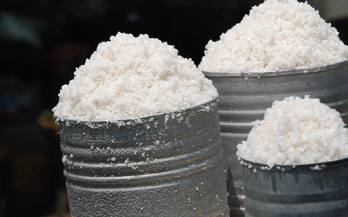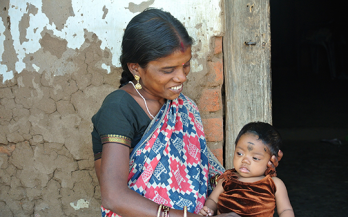Despite the global recommendation for fortification of salt with iodine, including salt used in food processing, most salt iodization programs have focussed only on iodization of household salt. This paper provides a comprehensive review of studies conducted to assess the effect of iodized salt on the organoleptic properties of processed foods and condiments.
The benefits of periconception folic acid (FA) supplementation in the prevention of neural tube defects is well recognized, but the evidence for preconception micronutrient interventions for improving pregnancy outcomes is limited. This study aimed to evaluate whether preconception supplementation with weekly iron and folic acid or multiple micronutrients improves birth outcomes compared with FA alone.
The objective of this study was to assess the effects of prenatal home (point‐of‐use) fortification of foods with multiple micronutrient powders on maternal and newborn health.
Two national surveys were conducted in Jordan in 2002 and 2010 to investigate the micronutrient status in women and children. To determine the prevalence of anemia, iron and folate deficiency among women and children in 2010 and compare with the prevalence of anemia and iron deficiency in 2002.
The Integrated Child Development Services in the State of Telangana, India, freely provides a fortified complementary food product, Bal Amrutham, as a take-home ration to children. This study was conducted to estimate the coverage and utilization of Bal Amruthama, a fortified complementary food product, and to identify barriers and drivers.
This study assessed whether the predicted differences in age-sex patterns were observed in the village, replicated the examination nationally for indigenous children, and examined whether the pattern in nonindigenous children was different.
Nutritional supplements are an important source of complementary food for young children, since they may either complement or substitute nutrients obtained from other food sources.
Vitamin D deficiency in children remains a global concern. Although literature exists on the Vitamin D status and its risk factors among children in the Middle East, findings have yielded mixed results, and large, representative community studies are lacking.
Researchers acknowledge that the majority of nationally-representative data on Vitamin A supplementation (VAS) status is outdated. This study examined data from 82 countries implementing VAS programs, identified other VA programs, and assessed the recentness of national VA deficiency data.
The purpose of this study was to examine the potential contribution of fortification of vegetable oils with vitamin A in Indonesia and Malaysia to increasing vitamin A consumption in these two countries and in countries to which oil is exported.










